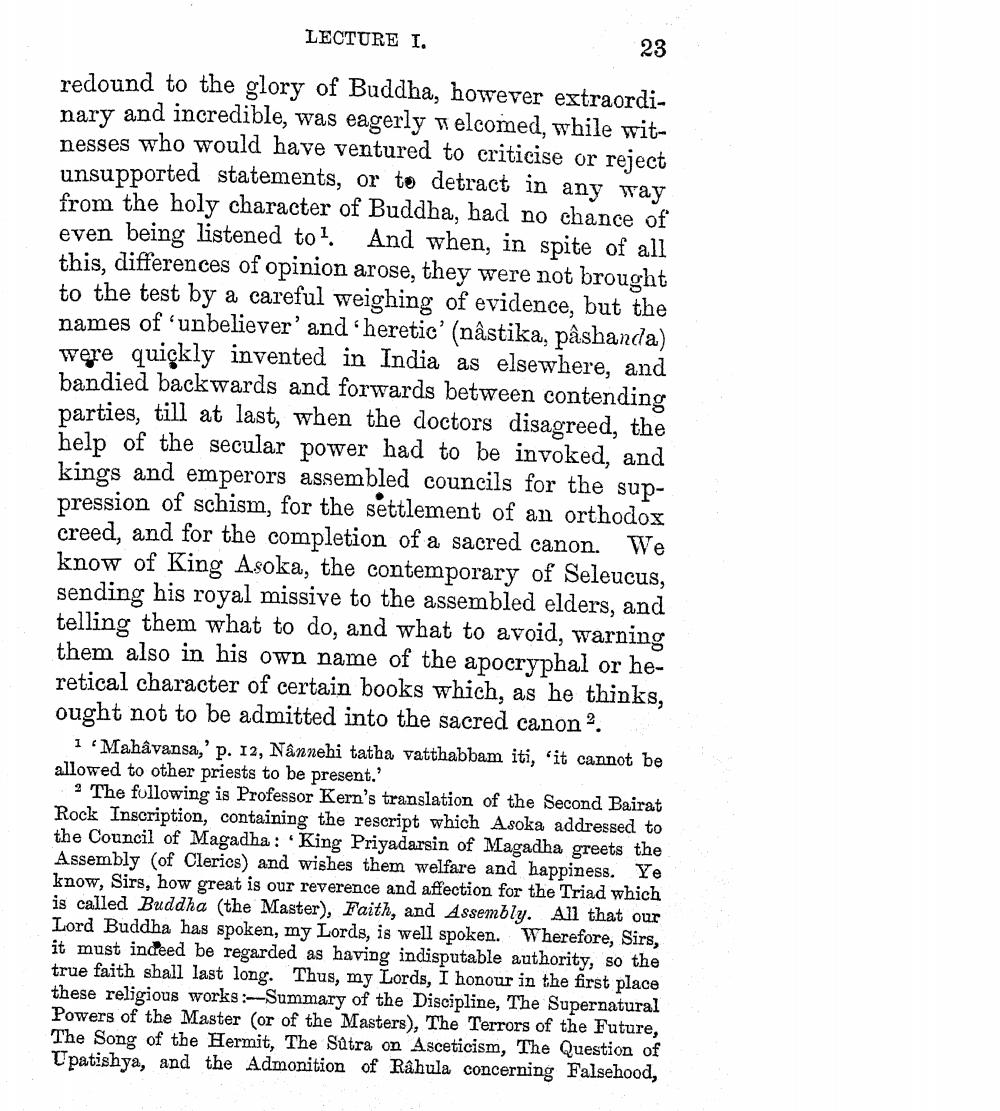________________
LECTURE I.
23
redound to the glory of Buddha, however extraordinary and incredible, was eagerly welcomed, while witnesses who would have ventured to criticise or reject unsupported statements, or to detract in any way from the holy character of Buddha, had no chance of even being listened to? And when, in spite of all this, differences of opinion arose, they were not brought to the test by a careful weighing of evidence, but the names of unbeliever' and 'heretic' (nâstika, pâshanda) were quickly invented in India as elsewhere, and bandied backwards and forwards between contending parties, till at last, when the doctors disagreed, the help of the secular power had to be invoked, and kings and emperors assembled councils for the suppression of schism, for the settlement of an orthodox creed, and for the completion of a sacred canon. We know of King Asoka, the contemporary of Seleucus, sending his royal missive to the assembled elders, and telling them what to do, and what to avoid, warning them also in his own name of the apocryphal or heretical character of certain books which, as he thinks, ought not to be admitted into the sacred canona.
1 Mahāvansa,' p. 12, Nânnehi tatha vatthabbam iti, 'it cannot be allowed to other priests to be present.'
2 The following is Professor Kern's translation of the Second Bairat Rock Inscription, containing the rescript which Asoka addressed to the Council of Magadha : King Priyadarsin of Magadha greets the Assembly (of Clerics) and wishes them welfare and happiness. Ye know, Sirs, how great is our reverence and affection for the Triad which is called Buddha (the Master), Faith, and Assembly. All that our Lord Buddha has spoken, my Lords, is well spoken. Wherefore, Sirs, it must indeed be regarded as having indisputable authority, so the true faith shall last long. Thus, my Lords, I honour in the first place these religious works:-Summary of the Discipline, The Supernatural Powers of the Master (or of the Masters), The Terrors of the Future, The Song of the Hermit, The Sutra on Asceticism, The Question of Upatishya, and the Admonition of Râhula concerning Falsehood,




